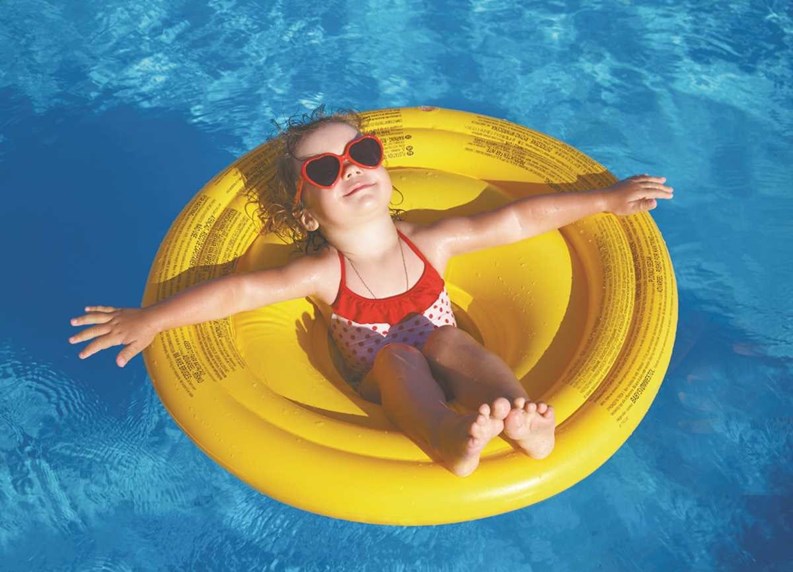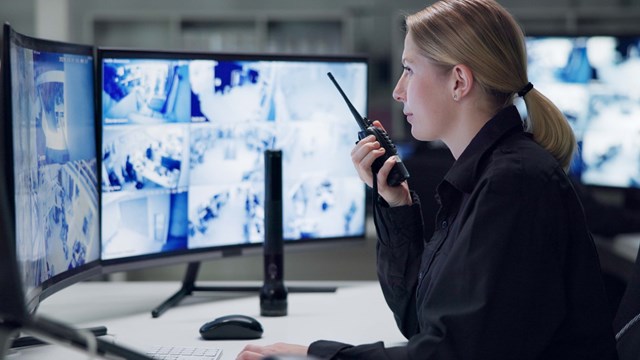When summer rolls around many Chicagoans can be found at any one of the 33 beaches along the shores of freshwater Lake Michigan. There may not be any waves but the vast blue waters can rival any Florida or California beach. Illinois’s natural water vistas are rivaled only by its swimming pools. The Association of Pool & Spa Professionals (APSP) based in Alexandria, Virginia noted a total of 131,586 in-ground pools in Illinois, according to 2011 statistics. Those figures have likely increased over the last year; add in 302,314 hot tubs and you have a very impressive amount of recreational water requiring maintenance and monitoring.
A Must-Have Amenity
A swimming pool is considered a must-have amenity for luxury condominium properties in Chicagoland. Pools create an atmosphere and an ambiance for any property. They are often a backdrop for social and recreational events and meetings. Beach lovers frequently favor pools for a refreshing swim—minus sand and harsh salt water—followed by a relaxing soak in the spa. Pool exercise classes, or water aerobics, are another great source of recreation, and hot tubs offer therapeutic relief for a host of ailments, as well as an enjoyable relaxation experience. When family and guests come to visit, an on-site pool offers a convenient recreational outlet for all ages. Even a non-swimmer can enjoy a barbecue or cocktail party when the setting includes a lush pool landscape decorated for the event.
Above-ground pools are a possible alternative to a traditional pool for residential homes, but not an optimal choice for condominium properties or public facilities, partly because they're not nearly as durable as in-ground models, and because they may also prove difficult to modify for compliance with the Americans with Disabilities Act (ADA).
Indoor pools are seen most often within facilities with health clubs and gyms, and/or limited outdoor property. Indoor pools should pose no more of a challenge to modify for ADA requirements than outdoor pools. New construction will not be awarded a certificate of occupancy without meeting all ADA requirements, and any non-compliant facilities may face direct legal action by the state, and civil lawsuits from individuals.
Accessibility & Safety Issues
New ADA guidelines for swimming pools were issued in March of 2011. Requirements apply to existing and new pools, wading pools, and spas (in-ground and portable) and deal with accessibility for all people to include ramps and lifts.
Within the last several years, another major law was passed to ensure the health and safety of anyone utilizing a public or commercial swimming pool or spa. The Virginia Graeme Baker Pool and Spa Safety Act (VGBA), also known as the Pool & Spa Safety Act, was introduced by Florida Rep. Debbie Wasserman Schultz and signed into law by President George Bush in December 2007. Designed to prevent injuries and fatalities caused by swimmers and soakers being trapped by the suction of underwater drains, the law became effective on December 19, 2008. The law was named after the seven-year-old granddaughter of former Secretary of State James Baker III, who died in June of 2002 when the suction from a spa drain trapped her underwater. Under the law, all public pools and spas must have ASME/ANSI A112.19.8-2007 compliant drain covers installed and a second anti-entrapment system installed, when there is a single main drain other than an unblockable drain.
Maintenance, Training & Education
While a condo resident may never realize the amount of due diligence required to keep pool waters safe, properly balanced, and crystal clear at all times, managers and boards should know better. Laurie Batter, who is the founder and leader of BatterUp! Productions, handles public relations for the National Swimming Pool Foundation (NSPF).
She stresses having a Certified Pool Operator (CPO) as the first step in quality swimming pool maintenance. The NSPF, (www.nspf.org) a leading non-profit trainer, offers the Certified Pool/Spa Operators certification course and the Pool Operator primer courses. Courses are also available through another non-profit, the National Recreation and Park Association (www.nrpa.org). “Preventing drowning, illness and injury are the most important goals when maintaining a pool,” says Batter, “but maintaining a pool also requires a little knowledge of chemistry, microbiology, public health, engineering, and math.”
A trained CPO is required by local, state and federal laws to test pool and spa water daily, and to record the readings in a log that remains readily available for inspections by the Illinois Department of Public Health (IDPH). The IDPH requires copies of the Daily Swimming Pool Operation Report to be available for inspection and kept at the facility for three years.
“On a daily basis the first and foremost thing is testing and recording the sanitizer and pH level as this helps to ensure the safety of the swimmers,” says Matt Bytnar, owner of Green Gecko Pools & Spas in Wheaton. “It is required by the Illinois Department of Public Health and should be done in the morning and again in the afternoon. The IDPH also requires you to record pool temperature and water clarity. Some of other daily checks would be water level, checking the skimmers for debris and equipment function and to make sure the pump is running. In addition I would recommend skimming debris from the surface and possibly brushing the bottom and sides of the pool. This will help the filter to be able to catch the debris and reduce the likelihood that algae will have a chance to start growing.”
David S. Rubenstein is the president and general manager of Chicagoland Pool Management in Lisle. His company manages dozens of swimming pool facilities of all sizes across the greater Chicagoland area. “Our concept is winterization for pools is the first step to summerization and opening of pools. We winterize in the fall throughout the winter season. Winterizing a pool is taking the water out of the system, out of the return pipes and blowing air into all the piping. In other words, you want to displace all the water for winter to avoid freezing and cracked pipes. This year, September 2 is Labor Day Monday and that’s when most pools will close. Memorial Day to Labor Day is the general rule of thumb for operation.”
“The majority of the commercial pools that we service are small commercial, HOA’s and apartments with a main pool or a main pool with a kid’s splash pool,” says Bytnar. “Typically up to about 50,000 gallons, we service the majority of these accounts twice per week. A lot depends on pool usage. The more heavily the pool is used, the more often it will need to be serviced.”
The NSPF, according to Batter, cites several safety check items a CPO will include to ensure a pool is running properly. In addition to the three times daily water chemistry checks, Batter lists maintaining pool water at or below 104 degrees F, and keeping filter pressure constant and water circulating. “The pool rules should be posted and clearly visible, and the bottom of the pool should also be clearly visible,” Batter advises.
Both Bytnar and Rubenstein value a good pool vacuum as a favorite tool. “All of our customers carry their own equipment and they have it on-site,” says Rubenstein. “They will have vacuums, vacuum heads, skimming screens, skimmer baskets, vacuum poles and vacuum hoses.”
“We always bring our own equipment to service accounts. However I like to have some basics on-site such as a test kit, telescoping pole, leaf net and brush,” says Bytnar. “Chemicals are stored on-site for easy access and to make it possible for a board member to add something, with our instruction should the need arise. When we service an account, we bring a self contained vacuum unit. This is typically faster than using a pool system to clean the pool and has better suction. Also, you are not filing the pool’s filter with the debris that you are removing. We also use a more heavy duty fiberglass tele-pole and bring a specialized pole with a scrubbing pad for cleaning the tile along the waterline. Typically we use a pro level test kit which allows us to test the water chemistry just as you would have done in a pool store. This allows us to make the necessary adjustments to the water chemistry immediately.”
In addition to daily routine pool maintenance, a CPO must know and comply with all codes, regulations and laws. Additional information is available on the Illinois Department of Public Health website, www.idph.state.il.us.
Pool pros interviewed noted that pool size, pool usage, pool surroundings and weather are several factors that affect the cost of upkeep of a pool but there is no need for building managers and boards to drown in maintenance costs.
“Each year more automation and technology becomes available which will help pool owners to cut costs while keeping their facilities running smoothly and safely,” says Bytnar. “A few examples are variable speed pumps and LED pool lights. You can purchase an LED which will give you the equivalent of a 500 Watt incandescent light but only requires 58 Watts to operate.”
“In the long run chemical controllers are a good way to save money,” adds John A. Gitzinger, director of commercial customer service for Platinum Pool Care in Wheeling.
“It’s a machine that tests for chemicals twenty four hours a day, seven days a week and adds chlorine as needed. So it’s constantly monitoring the water and keeping it balanced.”
A swimming pool is an asset to your community and its residents, and an amenity that everyone should be able to enjoy. A knowledgeable staff and a proactive approach to maintenance and upkeep can be the best defense against potential problems, and will keep your pool in good shape for many years to come.
Anne Childers is a freelance writer and a frequent contributor to The Chicagoland Cooperator. Staff writer Christy Smith-Sloman contributed to this article.







Leave a Comment